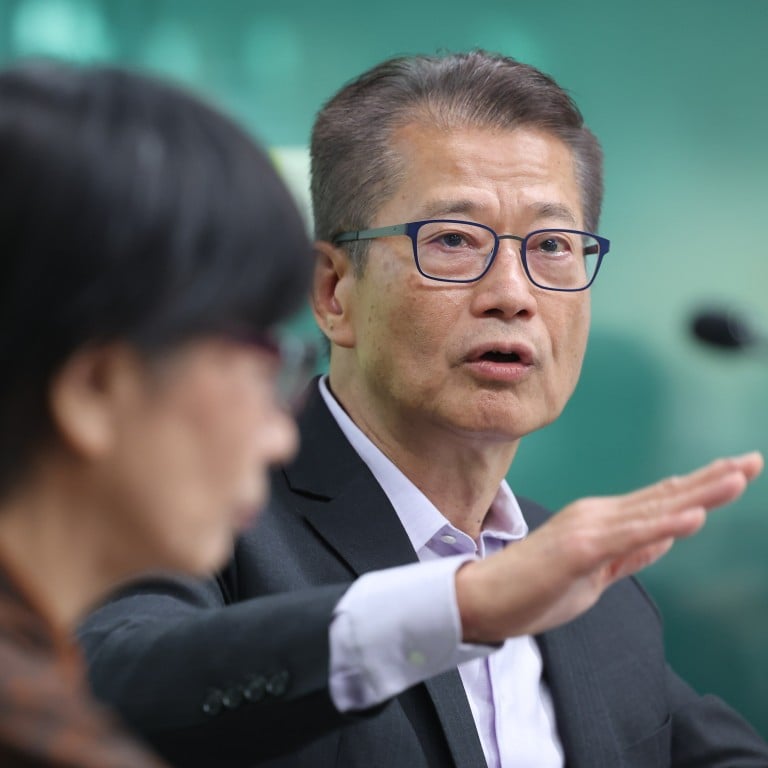
Pace of Hong Kong’s economic recovery may need to be re-evaluated but no drastic changes to forecasts, finance chief Paul Chan says
- Financial Secretary Paul Chan says Hong Kong may face a higher interest rate environment for longer
- US Federal Reserve earlier indicated any rate cuts may take longer than previously anticipated following a series of surprisingly high inflation readings
Hong Kong’s finance chief has warned of a need to re-evaluate the pace of economic recovery in the city amid possible delays to US interest rate cuts, but added that there will not be any drastic adjustments to growth forecasts.
Financial Secretary Paul Chan Mo-po said on Saturday that Hong Kong might face a higher interest rate environment for longer as the US Federal Reserve had earlier indicated any cuts might take longer than previously anticipated following a series of surprisingly high inflation readings.
“In that case, interest rate cuts in the city may need to be pushed back. We may need to re-evaluate the pace of economic growth,” Chan said at a Hong Kong News-Expo event.
But Chan maintained his economic growth forecast of between 2.5 per cent and 3.5 per cent for the full year, the same range as for the first quarter.
He also said there would not be any drastic adjustments to the forecast following stronger than expected exports.
“We’ve envisaged a gradually rising trend with the second half of the year faring better than the first half,” he said.
“We are now still examining the relevant data and will release the economic figures next month. So far we don’t see any reason to drastically revise our forecast amid mild inflation and a low jobless rate.”
Hong Kong’s economy grew between 2.5% and 3.5% in first quarter, Paul Chan says
The unemployment rate remains at a low of 2.93 per cent and inflation stands at less than 1 per cent. Property prices had experienced a yearly decline of about 7 per cent to 9 per cent, while the stock market had fallen by 14 per cent.
However, Chan said home prices and turnover had stabilised following the removal of all cooling measures for residential property in February.
“Our initial analysis is that there is a demand for residential properties although high interest rates will exert pressure on the market,” he said.
“We expect property prices won’t fluctuate while transactions will become stable.”
The average price of a lived-in flat rose 1.06 per cent in March, according to official data, the first gain in 11 months.
The index climbed to 305.7 from 302. 5 the previous month, according to the Rating and Valuation Department (RVD). The increase was broad-based, with all sizes of homes seeing a gain.
Finance chief hails mainland agency’s move to ease trading rules with Hong Kong
Foreign investment flows into the mainland fell 26.1 per cent in the January-March period, according to data from the commerce ministry in Beijing.
Professor Terence Chong Tai-leung, executive director of the Chinese University of Hong Kong’s Lau Chor Tak Institute of Global Economics and Finance, said the delay to interest rate cuts would not have much impact on the city’s recovery.
“Both the property and stock markets have rebounded lately, signifying capital inflows to Hong Kong from the US market. So far this momentum can still be maintained,” he said. “The rate reduction is only delayed for a while so the impact is only minor for the short term.”
He forecast the city’s economy would achieve moderate growth at between 3 and 4 per cent because of the positive effects from the removal of the property cooling measures and an improving stock market.

